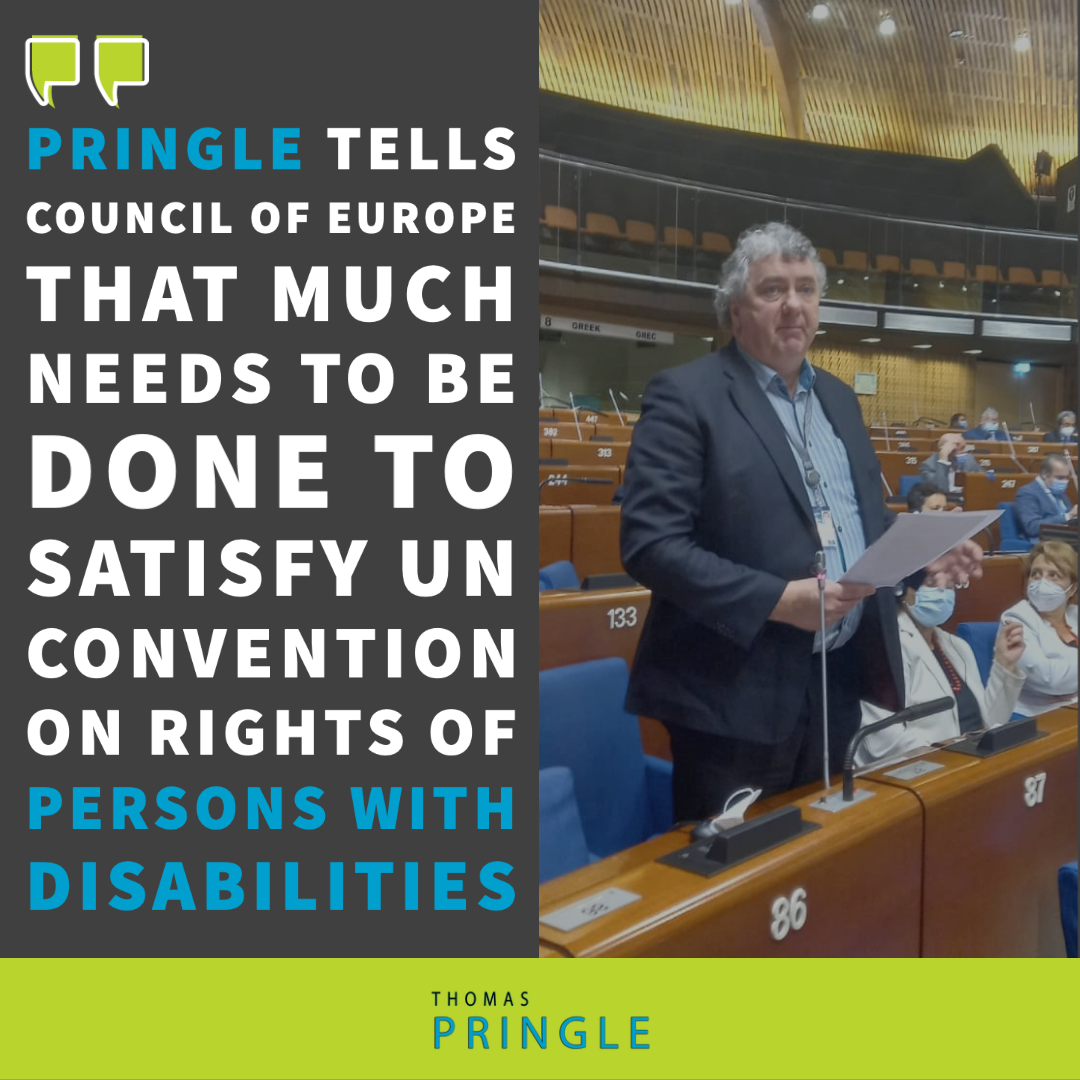- Pringle: We need a policy that recognises the importance of inshore fishing
- Pringle: Disabled people and carers face crisis of State neglect
- Pringle: Failed FF/FG housing policies forcing people to put their lives on hold
- Pringle welcomes Donegal council motion on Occupied Territories Bill: ‘We cannot stand by in the face of genocide’
Pringle tells Council of Europe that much needs to be done to satisfy UN Convention on Rights of Persons with Disabilities
- Updated: 27th April 2022

Independent TD for Donegal, Thomas Pringle, told the Council of Europe on Tuesday that a lot needs to be done to satisfy the United Nations Convention on the Rights of Persons with Disabilities.
Deputy Pringle said: “The UNCRPD committee highlighted the challenges in implementing the convention when they stated that the ‘committee is frequently faced with promising legislation, only to be sobered by the absence of enforcement due to lack of funding’.
“In Ireland I would contend that we have a lack of funding but also, we have suffered from a lack of sustained political commitment as well.
“Thankfully this appears to be changing, but it needs to be committed to by the whole of government. At the moment it appears to be down to good political leadership, which hopefully will be sustained. But I don’t believe that we can pin ourselves to hope,” he said.
Deputy Pringle was in Strasbourg, where he took part in a debate in the parliamentary assembly of the Council of Europe on the deinstitutionalisation of persons with disabilities. He was speaking on behalf of the Unified European Left group.
The deputy said: “When we consider that the institutionalisation of persons with disabilities affects more than one million citizens within Europe, it shows a lot needs to be done to satisfy the United Nations Convention on the Rights of Persons with Disabilities.
“Sadly, in Ireland we have a terrible history of institutionalising citizens. There has been a long history of abuses being exposed over the last ten years or more with the government having to apologise to citizens on a regular basis,” he said.
Deputy Pringle said: “There are several shocking cases such as the so called ‘Grace Case’ and the case of a residential centre for disabled people in my own constituency of Donegal, where the health authorities, the HSE, were fully aware of the sexual abuse of residents by another resident but completely ignored it.
“It was only after being brought up in parliament that they started reluctantly to act, despite knowing about the situation for many years.
“It is not surprising so when we see the state has reluctantly acted on its responsibilities in relation to the CRPD as well,” he said, noting that the Irish government signed the convention in 2007 yet only ratified it in 2018, the last country in the EU to do so.
“This was despite the law society stating in 2017 that there was no legal barrier to our ratifying the convention before then,” he said.
Deputy Pringle said that an upcoming test of the state’s commitment will be how it supports people with disabilities to live independently.
He said: “James Cawley of the Independent Living Movement of Ireland has said that ‘independent living is not just about living in a house or buying one. It is about all the pieces of the jigsaw fitting together. It is about our choices, our control and our dignity.’ This will be a test for our state but unfortunately history would not indicate that we will pass that test.
“I hope the next time we address this topic here that we can show progress. It is too early yet to say, but hopefully we will get there,” he concluded.



